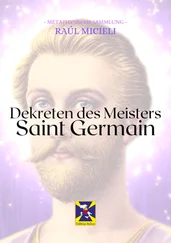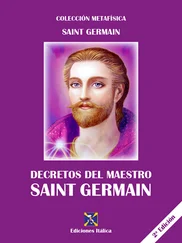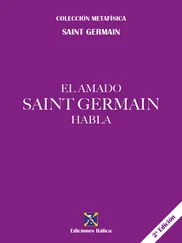Sylvie Germain - Magnus
Здесь есть возможность читать онлайн «Sylvie Germain - Magnus» весь текст электронной книги совершенно бесплатно (целиком полную версию без сокращений). В некоторых случаях можно слушать аудио, скачать через торрент в формате fb2 и присутствует краткое содержание. Год выпуска: 2008, Издательство: Dedalus Ltd, Жанр: Современная проза, на английском языке. Описание произведения, (предисловие) а так же отзывы посетителей доступны на портале библиотеки ЛибКат.
- Название:Magnus
- Автор:
- Издательство:Dedalus Ltd
- Жанр:
- Год:2008
- ISBN:нет данных
- Рейтинг книги:3 / 5. Голосов: 1
-
Избранное:Добавить в избранное
- Отзывы:
-
Ваша оценка:
- 60
- 1
- 2
- 3
- 4
- 5
Magnus: краткое содержание, описание и аннотация
Предлагаем к чтению аннотацию, описание, краткое содержание или предисловие (зависит от того, что написал сам автор книги «Magnus»). Если вы не нашли необходимую информацию о книге — напишите в комментариях, мы постараемся отыскать её.
Magnus — читать онлайн бесплатно полную книгу (весь текст) целиком
Ниже представлен текст книги, разбитый по страницам. Система сохранения места последней прочитанной страницы, позволяет с удобством читать онлайн бесплатно книгу «Magnus», без необходимости каждый раз заново искать на чём Вы остановились. Поставьте закладку, и сможете в любой момент перейти на страницу, на которой закончили чтение.
Интервал:
Закладка:
The Schmalkers’ house has a new resident, Myriam. She has come to live with her grandparents so she can attend a course at an art school in London, and more importantly to escape the family home where she refuses to take on the role of big sister responsible for helping mother with the younger ones. She gets on better with Hannelore and Lothar than with her parents. They treat her like an only daughter and not as the eldest of a large family. She has moved into the bedroom that used to be Magnus’s, and has fixed up a studio in the basement.
Myriam does not talk much, especially in the presence of strangers. At her first meeting with Magnus she says very little, but she scrutinizes him with an intense gaze. The gaze of a small wild animal, direct and fierce, and at the same time that of some startled creature, keyed with mistrust. Hannelore says of her granddaughter that she is like a ray of sunshine in their house, but a capricious sun that sometimes throws pellets of cold, dark light when her work does not meet with her satisfaction, when it falls short of what she wanted to achieve; then she destroys the work judged to be too feeble, unworthy of the dream that inspired it.
The light of day, meanwhile, is slowly fading from Lothar’s eyes. For some time he has been suffering spells of dizziness, deteriorating eyesight, easily induced breathlessness in his voice. Magnus offers to read to him when he visits. ‘Now,’ says Lothar, ‘I can’t engage with the author of a book by myself, I always need a reader, so there are three of us. The vocal inflections of the intermediary between the author and me reverberate on the text, and then I hear nuances I might not have discerned reading alone in silence. This sometimes produces unusual surprises…’
In order to be surprised better still, he sometimes asks each of his intermediaries to read him the same pages of a book — pages he ends up knowing by heart but in a polyphonic way, and this knowing ‘by heart’ thereby becomes tremulous, swells and fills with unexpected echos, questions, murmurs. He applies this procedure to biblical texts as well as literary texts, to poems and daily newspaper articles, and depending on whether the voice is that of Hannelore, Myriam, Magnus, or some other person, the words resonate differently. Hannelore’s voice almost imperceptibly slows and softens when a passage stirs doubts and anxieties in her. That of Myriam suddenly hammers out abruptly the words of sentences that evidently annoy her, against which she rebels. Magnus’s voice punctuates with infinitesimal pauses the sentences that disturb him, or whose meaning thwarts him, as if he were trying to tame them.
For a while Lothar keeps coming back to the Sermon on the Mount, as recorded in St Matthew’s gospel, and to the many commentaries on it, including that of Dietrich Bonhoeffer in his book The Cost of Discipleship , published in Germany shortly before the Schmalkers were forced into exile and ended up in London. When Magnus reads out pages written by this author he knows Lothar is listening not merely to a text but to the words of a man he knew, respected and admired, a living being who paid with his life the non-negotiable price of ‘costly grace’. In his prime, at the peak of his intellectual powers, in the full vigour of love, he paid the uncompromising price of that grace with his life, on the end of a rope, on a gallows erected at dawn in a concentration camp, by order of the Führer holed up in the bunker where he was to kill himself three weeks later. Magnus imposes a neutral tone on his voice, effacing himself before the voice of the deceased writer, allowing Lothar to engage in a dialogue with his friend and master. And while concentrating on his reading, Magnus listens to the old man’s breathing, whose sound gradually alters in the course of listening, is punctuated with discreet sighs, revealing not so much an emotion, agreement or disagreement, as a mind keeping pace with that of the other, from time to time halting on the fringe of a word, an idea, a desire, an illumination. Or a dizzying insight, such as Bonhoeffer’s comment echoing the call not to set oneself up as judge: ‘If, in judging, what truly mattered to me were the destruction of evil, I would seek evil where it truly threatens me: within myself.’
Timeline
DIETRICH BONHOEFFER
• Born 4/2/1906 in Breslau. Sixth child (one of eight siblings) of Karl Bonhoeffer, professor of psychiatry and neurology, and of Paula, née von Hase.
• 1923–27: theological studies at Tubingen, then in Berlin.
• 1927: presents his doctoral thesis in Berlin, entitled Sanctorum Communio: A dogmatic investigation into the sociology of the Church .
• 1928–29: curate in Barcelona of the German-speaking Protestant community.
• 1930: presents his Habilitationsschrift , allowing him to become a university teacher, entitled Act and Being .
• September 1930–June 1931: scholarship for post-graduate study in the United States (at Union Theological Seminary in New York).
• 1931: chaplain to the students at the Technical School of Charlottenburg. In September, takes part in the ecumenical conference in Cambridge (elected youth secretary of the World Alliance for Promoting Friendship through the Churches). On 15 November is ordained at St Matthaus church in Berlin.
• 1933: Hitler comes to power. D. Bonhoeffer immediately recognizes the fundamental evil of this Führer that Germany welcomes as a saviour, and publicly warns of the danger that ‘the image of the leader might slip into the image of the misleader … The leader and his office will be deified in a caricature of God’. He also condemns racial hatred and persecution of the Jews, extended to Christians of Jewish ancestry. ‘The exclusion of Jewish Christians from the community destroys the substance of Christ’s Church … The Church is not the community of those who are kindred, but the community of strangers who have been called by the Word. The people of God is a order that supersedes all others … “The Aryan Paragraph” [proclaimed 7 April 1933] is a heresy and destroys the substance of the Church.’ (Tract written in August 1933)
• October 1933–April 1935: serves as minister to a parish in London.
• 1935–37: runs one of the pastoral seminaries set up by the Confessing Church (separated from the German Church, which is completely compromised by its collaboration with the Nazi regime) at Zingst, then at Finkenwalde in Pomerania. Authorization to teach in university is withdrawn from him in 1936.
• 1937: publication of his work Nachfolge ( The Cost of Discipleship ). In October the Gestapo close down the pastoral seminaries; arrest of several former seminarists at Finkenwalde.
• 1938: first contacts with the Abwehr resistance circle that forms round Ludwig Beck, which is joined by Hans Oster, Wilhelm Canaris, Karl Sack … His brother Klaus Bonhoeffer, his brothers-in-law Rüdiger Schleicher and Hans von Dohnanyi also join the German resistance. ‘There is a satanic truth. Its nature consists in denying, under the guise of truth, everything that is real. It lives on hatred of reality and of the world created and loved by God. If we call one who is obliged by war to deceive a liar, the lie acquires a moral sanction and justification totally contradictory to its nature.’
• 1939: publication of the book inspired by his experience in the seminary at Finkenwalde — Life Together . Travels to London, then to the United States, but cuts short his stay and returns to Germany on the last ship to make the crossing, just before the declaration of war.
• 1940: banned from expressing himself in public and obliged to inform the police of all his movements. He works on his magnum opus Ethics , not to be published until after his death, by his friend Eberhard Bethge. Plays an active role in the political resistance movement.
Читать дальшеИнтервал:
Закладка:
Похожие книги на «Magnus»
Представляем Вашему вниманию похожие книги на «Magnus» списком для выбора. Мы отобрали схожую по названию и смыслу литературу в надежде предоставить читателям больше вариантов отыскать новые, интересные, ещё непрочитанные произведения.
Обсуждение, отзывы о книге «Magnus» и просто собственные мнения читателей. Оставьте ваши комментарии, напишите, что Вы думаете о произведении, его смысле или главных героях. Укажите что конкретно понравилось, а что нет, и почему Вы так считаете.












